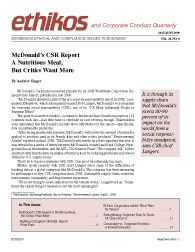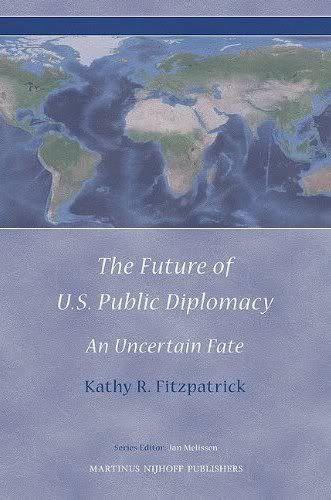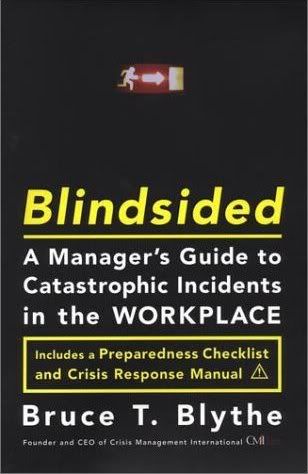| Quick Links | |
Upcoming Events
Web Seminars
MAY 20
The Lukaszewski Group
100 South Bedford Road,
Suite 340
Mount Kisco, NY 10549
914.681.0000-Office
914.681.0047-Fax
|
| Products
So You Want to Tell the Boss What to Do? | 
Becoming a Verbal Visionary
How to Develop the Mind of a Strategist
Ingredients of Leadership
Visit our Crisis Store for More Lukaszewski Products
|
| Jim's Suggested List of Management Reading | |
Churchill
|
|
Crisis Guru Blog
This is a blog for the curious, the strategic, the articulate, and the argumentative looking for sensible, interesting, constructive discussions. |
| Excellent Collateral Resources |
Phil Rothstein is one of the great publishers and information gatherers in the field of crisis communications, business continuation and resumption, and business resilience. This is an E-mail you're going to want to examine whenever it comes out. It's always jammed with stuff that you rarely see elsewhere.
Ethikos

If you have compliance responsibilities or your organization has them, this is a must read, every issue. It's real time, it's really authoritative, and it's understandable and useful.
This ezine, launched in February 2000, covers everything from crisis case histories to book reviews, from analyses of current breaking crises to pithy editorials on the state of crisis management today. | |
|
Executive Action
Strategic Crisis Management Insights for
Decision Makers and Their Trusted Advisors
|
Welcome to the latest edition of Executive Action. This issue contains new unpublished material, recommends some books you might find of interest, and offers a personal opinion or two. I hope you find the information timely, interesting, and useful.
Topics in This Issue
In this issue we will talk about:
- What kicked Toyota out of the news headlines (Editorial): I recently had a chance to visit with a friend who is a pretty well-known crisis manager. The occasion for the conversation was that he had spoken to a group of people from Toyota, at Toyota's invitation. Actually, I was curious about what was going on at the company so I asked him what he told the Toyota executives . . . . (Click here for more)
- Some wisdom from Winston Churchill: What I found most interesting in Paul Johnson's book, Churchill, was how the author has distilled the lessons of Churchill's life. I believe these are the author's construction rather than Churchill's, but they appear in the book and are illustrated with great circumstances and events in Churchill's life. Five beliefs that can inspire all of us . . . . (Click here for more)
- A new way to make yourself productively visible in Web searches: How about helping Google give you real visibility . . . . (Click here for more)
- An important new book: The Future of U.S. Diplomacy - According to Professor Kathy R. Fitzpatrick, J.D., APR, public diplomacy has never been more important in international relations . . . . (Click here for more)
- Contrast Analysis: The question this method of analysis answers is, "What matters more, our assumptions or the perceptions and realities of those whose lives we affect?" Do I need to tell you which answer is correct? Test your assumptions and theories against victim, survivor, family, and community realities. (Click here for more)
- When Death Is the Crisis: One of the most difficult challenges leaders and their communicators face is what to do, what to say, how to behave, and what decisions to make when someone is killed. This problem does arise, all too frequently. Here are some useful guidelines for both operators and communicators . . . . (Click here for more)
As always, your comments, questions, suggestions, debate, disagreements, and challenges are welcome.
James E. Lukaszewski, ABC, APR, Fellow PRSA
|
|
 Editorial Editorial
What Kicked Toyota Out of the News Headlines: A Template for All Crisis Situation Resolutions
I recently had a chance to visit with a friend who is a pretty well-known crisis manager. The occasion for the conversation was that he had spoken to a group of people from Toyota, at Toyota's invitation. Actually, I was curious about what was going on at the company and so I asked him what he told the Toyota executives. He began by telling me that he had really thought that putting Toyota's Chairman in front of Congress was a major mistake. According to him, when he mentioned this to Toyota executives, the room practically broke out into applause. He went on to mention a couple of other things and then asked me, "What would Jim Lukaszewski have done?" My answer was that I would have moved faster to get before Congress. I asked him, "When was the last time Toyota was in the headlines, big time, anywhere in the United States?" He paused and I waited. Then I said, "I'll give you a hint. It was before Toyota's CEO testified before Congress. There hasn't been a similar major story on Toyota since. In fact, testifying before Congress was one of the smartest things the Chairman of the company ultimately decided to do." It did help that there were almost no reports of accelerator problems, and that a couple of recent claims were debunked by the media and the company. At the same time, thousands of cars were being repaired or updated by Toyota every day to eliminate this problem. This is one of the more powerful lessons in crisis management. Putting a prepared boss with empathy, sympathy, and productive comments in front of the public will always be a success and help settle people down.
Even now, 28 years later, Tylenol is held up as a Paragon of public relations and business communication practice. Few, however, remember that it took Johnson & Johnson nearly 10 days to remove their product from the market. There were two poisoning incidents, four years apart. In 1982, the CIA, FBI, and FDA all recommended that the product be left on store shelves because people loved it, and taking it off the market abruptly would be seen as an overreaction to the situation, and, perhaps, even lead to terrorists boasting of their success and gaining a tremendous propaganda edge. The fact remains that Johnson & Johnson did a groundbreaking amount of communication and set the standard for corporate response.
There is an old saying about Congress that says it does nothing much of the time, then overreacts when it does decide to take action. There is probably much truth in that aphorism, but that reality allowed Toyota to get its act together and by the time Toyota's took its turn in in front of Congress.
The second lesson from these stories is that if you do things that matter and address the victim issues directly, you can move yourself out of the headlines faster.
|
|
 How About Helping Google Give You Real Visibility? How About Helping Google Give You Real Visibility?
For career professionals, "Googling" and being "Googled" are now standard practice for professional, personal, and other reasons. If you cannot be found quickly by search engines, you miss an important opportunity to make a powerful impression and validate your credentials.
Through a simple wizard, the Vizibility service enables people to quickly create the optimal Google search for themselves based on their name, employment history, and relevant keywords. It also allows for exclusion of irrelevant keywords and inaccurate search results. This PreSearch can be shared easily through a short, personalized SearchMe link or SearchMe button. The basic service is free. The service is in beta release at www.vizibility.com. |
 Jim's Critical Management Book Reading Recommendations Jim's Critical Management Book Reading Recommendations
|
 The Future of U.S. Public Diplomacy: The Future of U.S. Public Diplomacy:
An Uncertain Fate 
Martinus Nijhoff Publishers / Brill Academic
(October 31, 2009)
Public diplomacy has never been more important in international relations, yet public diplomacy's future as a valued national resource and a respected profession is far from certain. Lingering historical misperceptions and contemporary debate regarding public diplomacy's role and value in protecting and advancing national and international interests threaten public diplomacy's advancement on both fronts. Grounded in public relations theory and steeped in common sense, this book advances the global debate on public diplomacy's future by documenting the intellectual and practical development of public diplomacy in the United States and analyzing key challenges ahead. The author's fresh perspective provides compelling insights into public diplomacy's purpose and value, the conceptual foundations of the discipline, and principles of strategic practice. Based on extensive primary and secondary research, including a comprehensive survey of veteran U.S. public diplomats, the book reveals lessons learned from the U.S. experience in public diplomacy that will be critical in determining public diplomacy's fate in the United States and throughout the world.
Kathy R. Fitzpatrick is Professor of Public Relations and Director of Graduate Studies in Public Relations at Quinnipiac University in Hamden, Connecticut, USA. She is a senior public relations advisor, an attorney, and an internationally recognized scholar whose work focuses on U.S. public diplomacy and legal and ethical issues in public relations.
|
 Churchill Churchill
By Paul Johnson
Viking Adult
First Edition (November 3, 2009)
|
 Feeding Frenzy Feeding Frenzy
By John Harmon
Eloquent Books
|
 Blindsided: Blindsided:
 A Manager's Guide to Catastrophic Incidents in the Workplace A Manager's Guide to Catastrophic Incidents in the Workplace
By Bruce T. Blythe
Portfolio
(August 22, 2002)
|
|
|
|
|